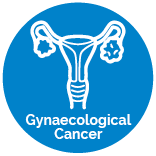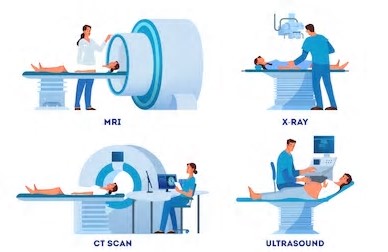Gynaecology Cancer Services

Gynaecological cancers include cervical cancer, ovarian cancer, vagina cancer, vulva cancer and womb (uterus) cancer. Available gynaecological cancer services at Calderdale and Huddersfield Trust include:
-
Diagnosis, tests and investigations: specialist review and second opinion; staging and investigation
-
Chemotherapy
-
Radiotherapy
-
Minimally invasive and open surgery
-
Critical care
-
Rehabilitation
-
Palliative and supportive care

Diagnosis and tests
All women with suspected cancer are referred to the service by their general practitioner, where they will usually be seen at a specialist clinic within two weeks.
Women who have abnormal bleeding are usually seen in our diagnostic clinics. Most women in this situation do not have cancer, but as cancer is a possibility, they are seen within 14 days of being referred by a GP so a diagnosis can be made and women without cancer can be reassured quickly. These clinics are also held at Calderdale Royal Hospital and Huddersfield Royal Infirmary.
Treatment
All women diagnosed with a gynaecological cancer are put under the care of a specialist cancer team, who will look at their individual illness and decide how it will best be treated. Your general practitioner will be sent the recommendations of the team within 24 hours of this discussion, and we will of course discuss your options with you at a clinic or on a ward if you are admitted to hospital.
Your treatment will involve an assessment, investigations and results on the same day by medical and nursing cancer care experts. You will be offered a walking pre-assessment and a surgery day within two weeks of being referred to our women’s outpatient. This is enhanced further by support from a dedicated Clinical Nurse Specialist (CNS) who complements the medical team and over sees your cancer treatment journey. The CNS offers on-going support from diagnosis and treatment to investigations and outcomes. This includes telephone advice and support when you are at home.
Check ups
The doctor will ask you to attend hospital at regular intervals during and after your treatment. You will be given a clinic appointment; these will probably become less frequent as time passes. Each time the doctor will examine you and ask how you are feeling. Blood tests, X-rays and scans may be repeated to check your recovery and make sure the cancer hasn’t returned.
